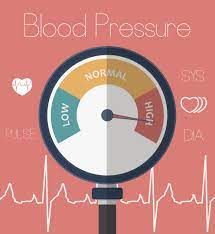It is common to see people order food, sit down and immediately add salt before
even tasting it. While this may appear normal, it is dangerous because too much salt
may lead to a health problem that has become a silent killer in the world-
hypertension commonly known as blood pressure..
Hypertension is becoming one of the leading causes of death in Zimbabwe but
surprisingly, the medical condition remains largely unknown or ignored by the
average citizen, contributing to inadequate treatment and management. There is,
therefore, an urgent need for a national policy that fosters prevention and control.
Additionally, this should emphasise prevention rather than cure.
Also, there should be evidence-based prevention strategies to better understand the
hypertension prevalence nationally.
The World Health Organisation (WHO) reports that as many as 39 percent of
Zimbabwe’s population of 15 million people may be suffering from the silent killer.
The WHO also says that 1.13 billion people worldwide have hypertension. Of them,
one in five women and one in four men, have the condition, commonly known as
blood pressure.
According to the latest WHO data published in 2020, hypertension deaths in
Zimbabwe totalled 1,146 or contributed 1.06 percent of total deaths. The age
adjusted death rate is 20.93 per 100,000 of population. Zimbabwe ranks number 78
in the world.
Globally, in 2000, 26.4 percent of adults had hypertension, with 26.6 percent of men
and 26.1 percent of women. By 2025, this number is projected to increase to 29
percent of men and 29.5 percent of women. In 2000, 972 million adults worldwide
had hypertension, with 639 million in developing countries. By 2025, this number is
predicted to rise 60 percent, to 1.56 billion.
“We are seeing a sharp rise of people who are diagnosed with hypertension every
day, no longer affecting just the elderly. Young people are being diagnosed too due
to routine blood pressure checks at hospitals for everyone since hypertension
checks are a must in medical facilities, including public health centres,” said Dr
Misheck Ruwende, Chief Executive Officer (CEO) and founder of Health and
Longevity, adding, “This diagnosis is usually accidental because when you go to
hospital for any illnesses they will first check your blood pressure and that is how
most people are getting diagnosed.”
Health and Longevity is a start-up initiative aimed at providing evidence-based health
information.
“I have been living with hypertension for a year now. I take my medication well
according to how the doctor instructed me. People tried to fool me to stop taking the
medication but l did not listen to them. Now, I am living a healthy life and l advice
others to check their blood pressure periodically,” said Siphilile Ncube from Victoria
Falls town in Hwange district.
Hypertension is when the force of the blood pressure is excessive. It is called a silent
killer because most people with high blood pressure do not know they have it.
Normal blood pressure is when the upper (systolic) reading number is less than 120
and lower (diastolic) number is less than 80. Elevated ranges between 120 – 129
upper number and less than 80 lower number. People with elevated blood pressure
are likely to develop high blood pressure unless steps are taken to control the
condition. High blood pressure 140 or higher and lower reading is 90 or higher.
Systolic blood pressure (the first number) indicates how much pressure your blood is
exerting against your artery walls when the heart contracts. Diastolic blood pressure
(the second number) points to how much pressure your blood is exerting against
your artery walls while the heart muscle is resting between contractions.
Hypertensive crisis is when one requires medical attention. If the blood pressure
readings suddenly exceed 180 mm Hg top reading and 120 mm Hg bottom reading
needs health care professional. One could be experiencing a hypertensive crisis. It
can be accompanied by signs such as chest pain, shortness of breath, back pain,
numbness/weakness, change in vision or difficulty speaking.
“I was feeling dizzy for more than three weeks and had difficulties waking up. It was
associated with witchcraft and was administered herbs but to no avail. Luckily, l had
a daughter who was a nurse who advised me to go to the hospital and my blood
pressure was elevated. That is how l was diagnosed with hypertension in 2012 and
till now I am taking my medication religiously,’’ said Khethiwe Dube from Nkayi
district in Matabeleland North province.
Doctors cautioned that hypertension is on the rise due to lack of physical activity,
smoking, salt-rich diets, and alcohol abuse. This health condition can result in heart
attacks, strokes, kidney failure, blindness, and other serious complications.
“Hypertension risk factors that cannot be changed include family history, age (over
65) and the presence of diabetes mellitus (diabetes), kidney disease or other health
conditions” said Dr Ruwende.
The emphasis is now on prevention of hypertension, because prevention is cheaper
and less burdensome than treatment.
“I was rushed to hospital unconscious after stopping taking one of the tablets without
consulting a doctor and continued taking the other type only. When l came back to
my senses the doctor advised me never to stop any medication without consulting
him. I have been taking blood pressure medication for five years now,’’’ Mthandazo
Mudenda from Hwange district, also in Matabeleland North province, said.
Doctors typically advise individuals facing difficulties in this area to address their
lifestyle choices. Effective ways to prevent hypertension include increasing
exercises, reducing salt intake, limiting alcohol use, quitting smoking, reducing
consumption of processed foods, eating more vegetables and fruits, and losing
weight if one is overweight.
In addition, those affected by hypertension should take their prescribed medications,
monitor their blood pressure, and manage stress.
According to the National Health Strategy for 2016-2020 a 2005 study recorded a 27
percent prevalence rate of hypertension in Zimbabwe.
One of the priority areas of the National Health Strategy is to prevent and control
non-communicable diseases (NCDs), such as hypertension, diabetes, cancer and
mental disorders.



